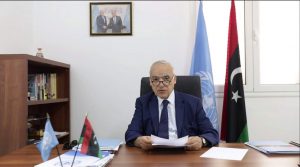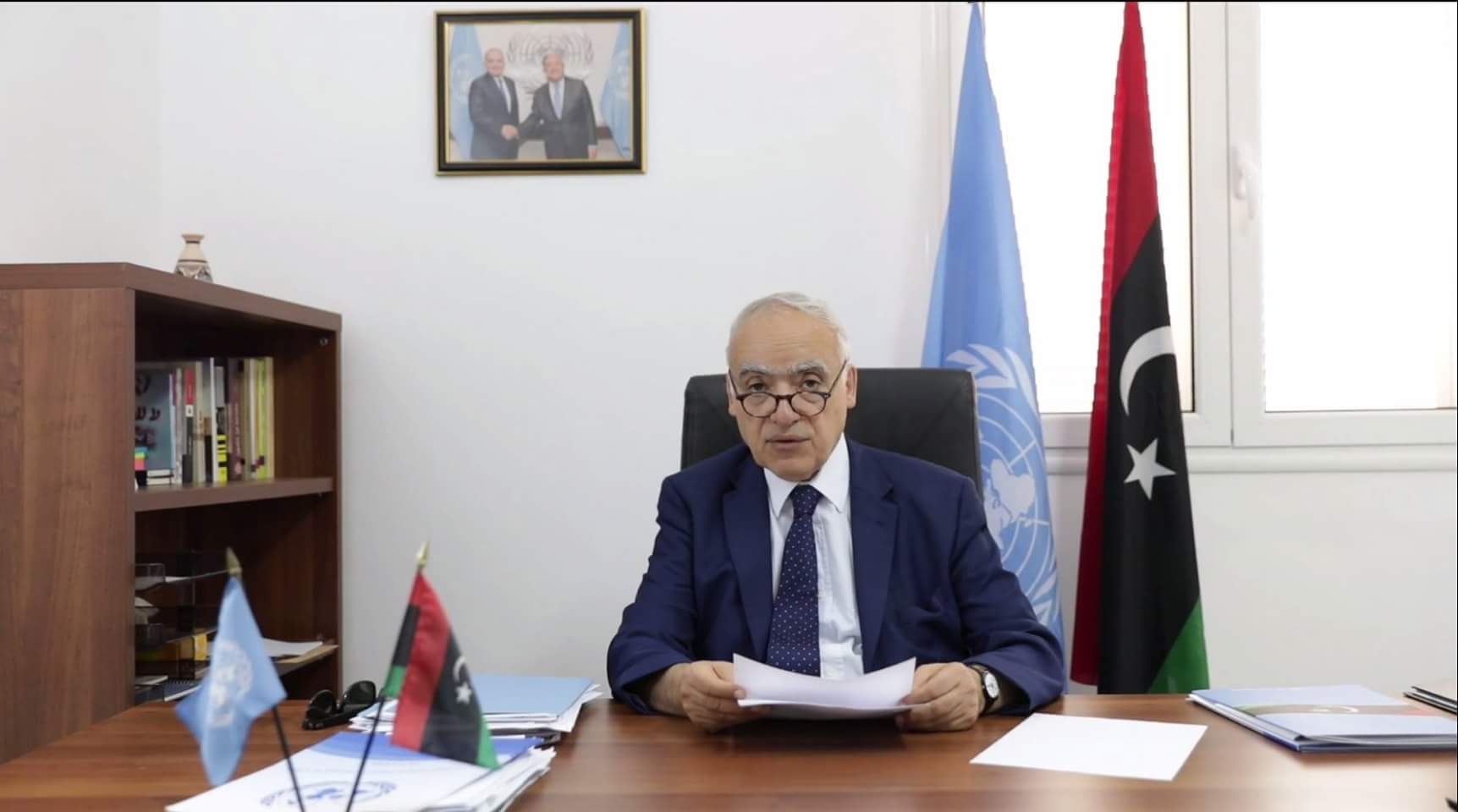By Sami Zaptia.

London, 28 September 2018:
In his recent address to the 39th session of the Human Rights Council, SRSG and UNSMIL head Ghassan Salame, said that UNSMIL has pushed for concrete and balanced steps to build (non-militia based) state security institutions in Libya.
He said that UNSMIL had encouraged the Libyan authorities to revise the Tripoli security arrangements and undo what he called the “intolerable and unsustainable status quo”.
It will be recalled that the 2015 Skhirat Libyan Political Agreement stipulates that the heavy weapons that were used in Tripoli’s militia fighting should be stored outside all urban centres. It also stipulates for the formation of non-militia based army and police.
However, the weak Faiez Serraj administration which depends on Tripoli militias to prop it up, has been unable to reform militias into an accountable army and police.
This failure has been a major bone of contention between the Serraj-led Presidency Council and Government of National Accord on the one hand, and the eastern-based authorities in the form of the House of Representatives and Khalifa Hafter and his Libyan National Army.
It is one of the main reasons why the eastern-based authorities have refused to recognize the Serraj Government of National Accord. It has also been a major reason for Libya’s whole political process stalling, with Libya stuck in its current transitional stage.
Salame went on to say that Libya’s security cannot remain with the armed groups (militias) which continue violating international humanitarian law and human rights while using foreign mercenaries, especially in the the south of Libya.
He reported that this month’s Tripoli militia clashes resulted in 120 dead, 400 injured, 5.000 displaced and increased abductions and looting that underline the consequences of Libya’s lawlessness.
He said that the long-enjoyed impunity of Libya’s militias must be challenged and all grave violations punished. He requested that sanctions be imposed and perpetrators brought to national courts or the International Criminal Court.
Salame said that the UN Security Council sanctioning six human traffickers, earlier this year, was a good first step towards shattering the confidence of perpetrators who seem to imagine that they cannot be punished.
He also pointed out the resurgence of ISIS in Libya, as terror attacks rise, noting that 57 people have been killed in 14 attacks since the start of the year, including two in the latest one on the National Oil Corporation’s Tripoli headquarters.
It is not clear if now Serraj will have the courage to reform Tripoli’s militias. It is also not clear if he can and whether they will give up their huge power and influence.
It is also not clear if militias will negotiate themselves out of their positions of influence and some of their positions of wealth or whether they need to be defeated militarily.
The latest Tripoli militia fighting has also puts Faiez Serraj’s position as head of the Presidency Council in question with the House of Representatives and the High State Council at least now talking about reforming the Presidency Council. It has become more unlikely that Serraj will remain as its head.








